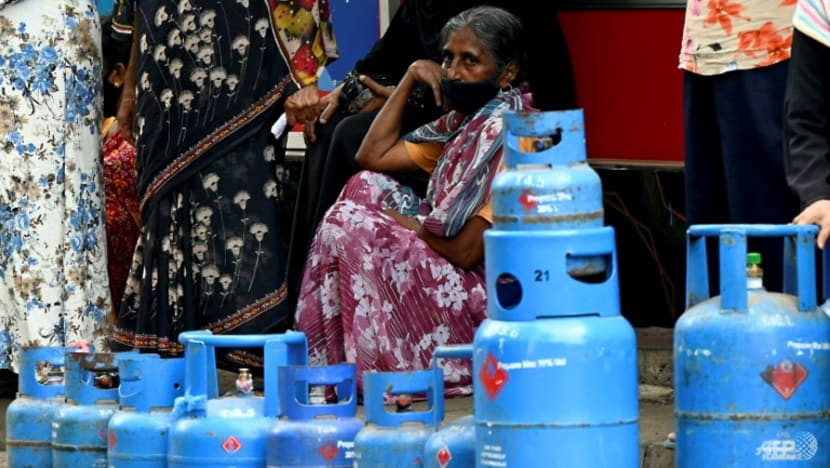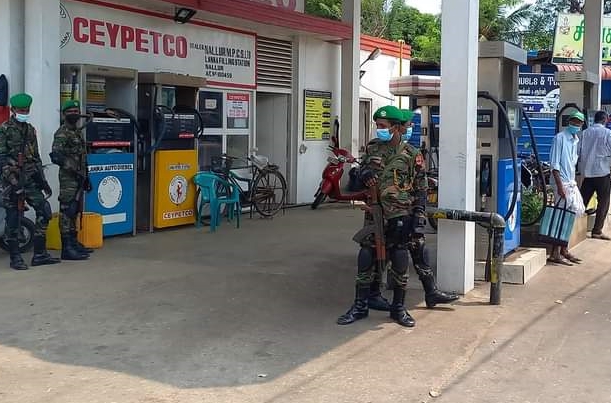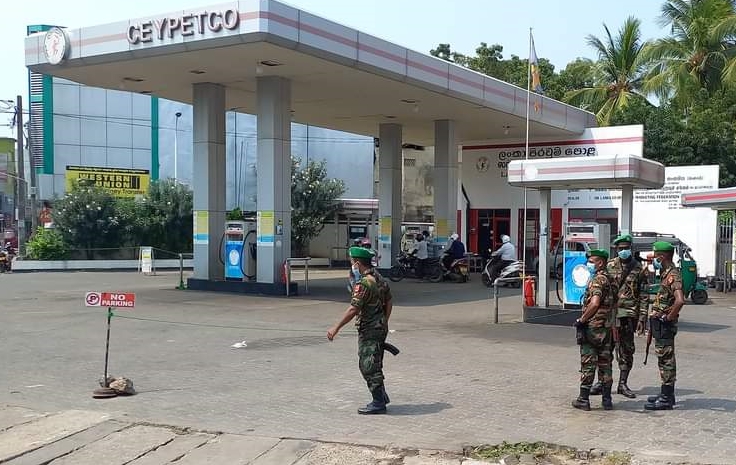COLOMBO/AFP: Sri Lanka ordered troops to petrol stations Tuesday (Mar 22) as sporadic protests erupted among the thousands of motorists queueing up daily for scarce fuel.
The South Asian island nation is grappling with its worst economic meltdown in over seven decades, with rolling electricity blackouts and essential goods such as food and cooking gas also in short supply.

Soldiers were deployed after angry crowds blocked a main artery in Colombo and held up traffic for hours because they were unable to buy kerosene oil on Monday, government spokesman Ramesh Pathirana said.
Footage of the incident shared on social media showed a group of angry women blockading a tourist coach to protest shortages of kerosene needed for cooking stoves.
“We saw tourists being held up, we are also hearing that some people may be hoarding oil and that is why the government decided to deploy the military,” Pathirana told reporters in the capital.
The troop call also follows the stabbing murder of a motorcyclist by another driver after a dispute over his place in a long queue for fuel outside Colombo.
“Tempers are getting frayed as queues get longer,” a top defence official told AFP on condition of anonymity.
“A decision was made last night to call out soldiers to reinforce the police. This is to discourage any unrest.”
Three elderly people have dropped dead at fuel queues since Saturday, police said, adding that numerous petrol stations saw people camping overnight to wait for diesel and gasoline purchases.
Military officials said soldiers were deployed at pumping stations of the state-run Ceylon Petroleum Corp, which accounts for two-thirds of the fuel retail business in the nation of 22 million people.
President Gotabaya Rajapaksa’s office announced a summit of all political parties on Wednesday to discuss the economic crisis, but opposition groups said they planned to boycott the meeting.
Sri Lanka’s financial crisis stems from a critical shortfall of foreign currency, leaving traders unable to finance imports.
The COVID-19 pandemic throttled the island’s tourism sector – a key foreign exchange earner – and remittances from Sri Lankans working overseas have also declined sharply.
Rajapaksa announced last week that the country will seek a bailout from the IMF, which says the government’s foreign debt burden of US$51 billion is unsustainable.
The government announced Tuesday that it was seeking to restructure this debt and was looking for an international law firm to advise on the legal implications.
Shortages of foreign exchange have wrought havoc on almost every aspect of daily life, with authorities last week postponing term tests for millions of students because of a lack of paper and ink.
Source: AFP/ac/vc

